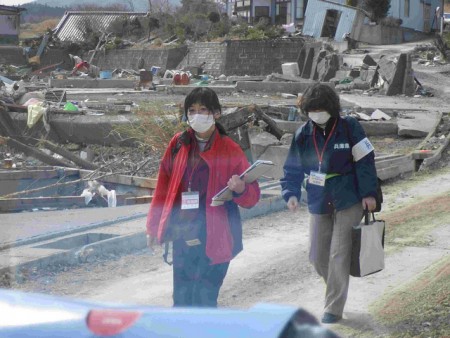
Reports have recently stated the Middle East Respiratory Syndrome Coronavirus [MERS-CoV] has become stagnant. Reports have also stated the virus has killed up to 14 people in Seoul, South Korea, and infected almost 140 middle easterners. After a week-long review the World Health Organization [WHO], has found ways to keep MERS away from surrounding territories. Experts and WHO reporters have told sources, “there is no evidence which indicates hospital facilities that are confining the virus is what causes it to spread. Instead the virus is spreading amongst visiting family members, hospital patients and medical staff.”
Studies have shown that people do not successfully spread the virus; however, overcrowded hospital wards and emergency rooms seems to be the cause of the virus being spread widely. 12 new cases have been discovered on Saturday, June 13, but Keiji Fukuda, assistant director of World Health Organization told sources, “many of the cases that were considered new, included people who were already infected with MERS.” The World Health Organization keeps MERS away by separating the infected from the non-infected.
MERS is a coronavirus that includes symptoms of the common cold and SARS. It also causes fevers, breathing problems, pneumonia and kidney failure. Experts believe MERS spreads through respiratory droplets, similar to coughing, but studies believe it spreads through human contact due to its slow process of spreading. However, most patients that have died from the MERS virus were already suffering from diseases, such as cancer and respiratory problems. 
It is still unclear to scientists as to how the disease spreads, but WHO has offered tips to help prevent an individual from possibly contracting the virus. One of the tips states do not drink camel urine or milk. The Center for Disease Control and Prevention [CDC ] also has a list posted on their site, for people who may be at risk, which helps one stay away from getting the virus. The list suggests the following:
1) Arabian Peninsula Recent Travelers- 14 days after traveling if a person develops a fever and symptoms of respiratory illnesses in or near the Arabian Peninsula call a doctor immediately. If a person is feeling ill, he or she should stay home.
2) Individuals that were recently in the Republic of Korea healthcare facility – 14 days after being in a healthcare facility, symptoms of respiratory illnesses begin to occur a doctor should be called and patients should explain their recent presence in the aforementioned healthcare facility.
3) Close contact with an Arabian Peninsula III Traveler- if a person had close contact with an individual who has been confirmed having the MERS-CoV infection, a healthcare provider should be contacted immediately for testing. The individual must monitor his or her health for 14 days looking for symptoms such as:
- Fever – check temperature throughout the day
- Coughing
- Shortness of breath
- Chills, body aches, sore throats, diarrhea, runny nose, nausea and vomiting
4) Individuals exposed to camels – the World Health Organization has found MERS-CoV in some camels, and many patients have talked about their exposure to camels. It has not been proven that camels passed the virus onto humans, but to keep the virus stagnant the World Health Organization wants people exposed to camels to be cautious, and those that are not close to camels to steer away from them.
The World Heath Organization also wants people to keep away from farms, barns, markets, and other possible places where animals can be found. General hygiene should be practiced by everyone and travelers should take more care by washing their hands before and after touching animals, and stay completely away from sick animals. Raw and uncooked food must not be consumed by travelers. Individuals of high risk have been categorized into certain groups by the organization and they consist of people suffering from diabetes, chronic lung disease, kidney failure, and weakened immune systems. Additional precautions should be taken by those in the categorized groups such as:
- Raw camel milk and urine should not be drunk
- Undercooked meat (camel meat) should not be eaten
- Contact with camels should be avoided
5) Infection control precautions not recommended by healthcare professionals – Healthcare professionals should recommend infection control precautions that are both airborne and contact. The facilities should also be able to manage patients that are infected and not infected. If control procedures are not implemented it gives MERS-C0V a higher chance to spread.
As the World Health Organization continues to find out what caused MERS-CoV to spread, the listed precautions will keep the virus stagnant. The World Health Organization is doing its best to keep the numbers of death from the virus low and away from spreading outside of South Korea.
By Krystle Mitchell
Sources:
Times Free Press: MERS not spreading outside of South Korea hospitals
Denver Post: World Health Organization down plays S. Korea MERS
Newser: WHO warns not to drink camel milk
Photo Courtesy of Direct Relief’s Flickr Page – Creative Commons License
Photo Courtesy of Amira_a’s Flickr Page – Creative Commons License



